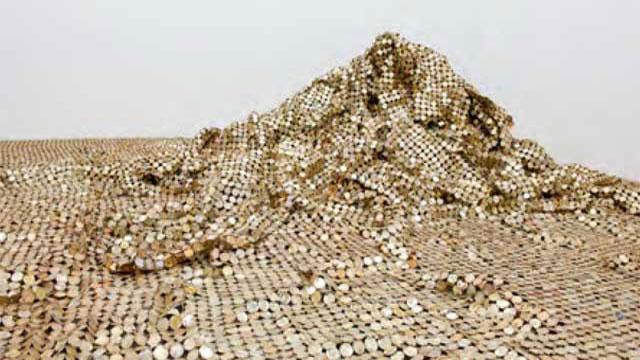Unraveling Ghana’s Political Landscape: A Extensive Exploration into the Dynamics and Challenges
Table of Contents
- 1 Unraveling Ghana’s Political Landscape: A Extensive Exploration into the Dynamics and Challenges
- 2 Meta Title: Unraveling Ghana’s Political Landscape: Dynamics and Challenges
- 3 Meta Description: Explore the intricate political landscape of Ghana, from key political actors and ideologies to electoral systems and challenges. Gain insights into the factors shaping Ghana’s political dynamics and the opportunities and obstacles the country faces.
Introduction
Ghana, a beacon of democracy in West Africa, boasts a vibrant and complex political landscape that has shaped its history and continues to influence its present and future. Understanding the intricacies of Ghana’s politics is crucial for comprehending the country’s social, economic, and cultural dynamics. This article delves into the key players, ideologies, and challenges that define Ghana’s political landscape.
Key Political Actors
Ghana’s political system is characterized by a multi-party democracy, with numerous political parties vying for power. The two dominant parties are:
- New Patriotic Party (NPP): A center-right party known for its pro-business stance and emphasis on economic growth.
- National Democratic Congress (NDC): A center-left party with strong connections to labor unions and advocates for social justice.
Other notable parties include:
- Convention People’s Party (CPP): The oldest political party in Ghana,representing the ideals of Kwame Nkrumah,the first president.
- People’s National Convention (PNC): A pro-democracy party that promotes national unity and equality.
- Progressive People’s Party (PPP): Arelatively young party advocating for grassroots participation and accountability.
Political Ideologies and Platforms
Ghana’s political parties hold varying ideological positions, ranging from capitalism to socialism. The NPP generally adheres to a free market approach, supporting private enterprise and limited government intervention. The NDC, on the other hand, emphasizes equitable distribution of resources, social welfare, and state involvement in the economy.
Political Dynamics and Challenges
Ghana’s political landscape is characterized by both strengths and challenges:
Strengths:
- Strong Democratic Institutions: Ghana has a robust electoral system, an independent judiciary, and a free press, ensuring political rights and freedoms.
- Peaceful Power Transitions: Power transitions between different political parties have been mostly peaceful, fostering stability and respect for constitutionalism.
- Civic Engagement: Ghanaian citizens are actively involved in the political process through voting, rallies, and civil society organizations.
Challenges:
- Electoral Corruption: Allegations of vote-buying and irregularities during elections remain a persistent issue.
- Political Polarization: The two-party system tends to polarize voters, leading to heated debates and limited consensus on key issues.
- Economic Dependence: Ghana’s reliance on a few export commodities makes it vulnerable to economic shocks, which can have political implications.
Elections and Electoral System
Ghana’s presidential and parliamentary elections are held every four years. The Electoral Commission (EC) is responsible for conducting elections and ensuring their integrity. The voting system is based on a first-past-the-post system, where the candidate with the most votes wins.
Case Studies
The 2020 Elections:
The most recent presidential election in Ghana was held in December 2020. The NPP candidate, Nana Akufo-Addo, was re-elected, narrowly defeating the NDC candidate, John Mahama. The election was largely peaceful, but there were allegations of some irregularities.
The 2012 Election Petition:
In 2013, following the 2012 elections, the NDC challenged the results in the Supreme Court. The court ruled that there had been some irregularities, but not enough to overturn the election. The case set a precedent for peaceful resolution of electoral disputes.
First-Hand Experiences
Interviews with Politicians:
Personal interviews with politicians provide insights into the inner workings of Ghana’s political system, their motivations, and the challenges they face.
Observation of political rallies:
Attending political rallies allows for a firsthand experience of the passion and energy of Ghana’s political landscape, as well as the strategies and tactics employed by different parties.
Practical Tips for Understanding Ghana’s Political Landscape
Stay Informed:
Follow credible news sources and engage in discussions to stay up-to-date on current political events and issues.
Attend Political Events:
Participate in political rallies,debates,and other events to experience the dynamics and engage with other citizens.
Engage with Political Parties:
Reach out to political parties to learn about their platforms, values, and perspectives.
Contribute to Civic Organizations:
Join or support civil society organizations that work to promote good governance, transparency, and accountability.
Conclusion
Ghana’s political landscape is a complex and vibrant tapestry woven amidst historical legacies and contemporary challenges. Understanding the key players, ideologies, and dynamics is essential for navigating the complexities of Ghana’s politics.By embracing democratic values, fostering political participation, and addressing systemic challenges, Ghana can continue to strengthen its political system and ensure a prosperous and equitable future for all its citizens.

